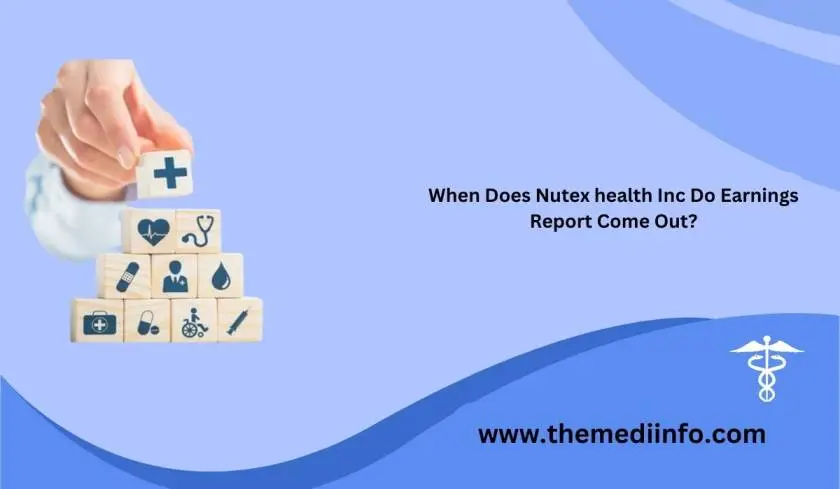
Anorexia nervosa and bulimia are both eating disorders in which a person tries to lose weight in unhealthful ways.
According to the National Institute of Mental Health, about 0.6% of adults in the United States experienced anorexia between 2001 and 2003, compared to 0.3% who experienced bulimia.
There are essential differences between anorexia and bulimia, and it is possible for a person to have both at the same time.
In this article, learn more about the symptoms of the two conditions, their differences, and when to see a doctor.

People with anorexia and bulimia may fixate on weight and appearance, and they may have a distorted body image. Both conditions result in a person trying to lose weight using unhealthy strategies.
There are key differences between anorexia and bulimia. People with anorexia tend to adopt extreme diets. They may restrict their food intake to a degree that can lead to malnourishment and even death.
Some people with anorexia exercise to excess. If a person is already malnourished, this amount of exercise may cause them to faint or experience other potentially severe adverse effects. Also, a person with anorexia may vomit or take laxatives to lose weight.
The primary characteristic of bulimia is episodes of binge eating followed by ‘purging.’ An episode may involve overeating and later vomiting, using laxatives, or administering enemas to get rid of the calories consumed.
Learn more about the differences between the symptoms of anorexia and bulimia below.
A person with either disorder may be a perfectionist and fixate on pleasing others. Some research points to distinctions in the psychological makeup of people with these disorders.
For example, the authors of a 2016 study found that, compared to those with anorexia, people with bulimia are more likely to:
- have fathers with very high expectations
- have a history of overweight in adolescence
- have grown up in families that emphasized fitness and staying in shape
The primary symptom of anorexia is restricting food intake with extreme dieting. The main symptom of bulimia is compensating for episodes of overeating by trying to purge the food.
A person may engage in either type of behavior in secret, but anorexia and bulimia can also cause distinct symptoms that are more likely to be apparent to others.
Anorexia can cause a person to:
- lose weight rapidly
- avoid meals
- eat very little at meals
- try to hide how much they eat
- have brittle hair and nails
- fixate on their weight
- develop anemia
- have constipation
- experience weakness
- experience fainting and fatigue
- stop menstruating, which doctors call amenorrhea
- develop infertility
- experience organ failure
Some signs and symptoms of bulimia include:
- frequent overeating
- eating in secret
- disappearing after meals
- having a swollen throat or neck
- developing acid reflux
- having oral health problems, such as tooth loss or broken teeth
- experiencing severe dehydration
- having electrolyte imbalances, which can cause health problems
People of all body types and weights can have eating disorders. However, anorexia tends to cause more rapid weight loss.
No objective test — such as bloodwork or an X-ray — can definitively point to an eating disorder. Instead, a doctor makes the diagnosis based on a person’s symptoms.
To diagnose anorexia or bulimia, the doctor will ask about the person’s symptoms, and they may also ask family members and other loved ones about their observations.
If a doctor believes that a person has anorexia, they will attempt to diagnose the type. One type primarily involves restricting food intake, while another involves episodes of overeating and purging. If the person has experienced at least one of these episodes in the past 3 months, the doctor will likely make a diagnosis of binge eating and purging anorexia.
In order for a person to receive a diagnosis of bulimia, they must engage in binge eating and unhealthful compensatory behavior at least once a week for at least 3 months, on average. The doctor will classify the severity based on the average number of episodes of compensatory behavior per week.
Diagnosis can be challenging because many people with eating disorders attempt to conceal their symptoms. Even when a person with an eating disorder knows that they are ill, they may be too afraid of gaining weight to seek help.
Support and encouragement from loved ones can be critical, helping a person receive an accurate diagnosis and intervention early. This is especially true for children and adolescents, whose parents or caregivers may have to accompany them when they seek treatment.
Some medical tests can help with a diagnosis, especially when health problems result from an eating disorder. For example, the health of a person’s tooth enamel can sometimes indicate the severity of bulimia.
Treatment of eating disorders has a few goals, including:
- addressing any health consequences of the disorder
- tackling underlying psychological issues, such as depression, low self-esteem, or trauma, which may have triggered the disordered eating behaviors
- restoring a healthy body weight
People with eating disorders need comprehensive treatment that addresses the physical and psychological symptoms. For this reason, many people choose inpatient or intensive outpatient treatment programs.
Effective treatment can include:
- nutritional counseling to help correct nutritional imbalances and maintain a healthy body weight
- medical treatment for the physiological complications of eating disorders, such as anemia or acid reflux
- support groups to draw on the experiences of others
- therapy, such as cognitive behavioral therapy (CBT) or eye movement desensitization and reprocessing (EMDR), which can address trauma
- medication for underlying mental health conditions such as depression and anxiety
- hospitalization, if the person is having thoughts of suicide or has severe health problems, such as organ failure
Suicide prevention
- If you know someone at immediate risk of self-harm, suicide, or hurting another person:
- Call 911 or the local emergency number.
- Stay with the person until professional help arrives.
- Remove any weapons, medications, or other potentially harmful objects.
- Listen to the person without judgment.
- If you or someone you know is having thoughts of suicide, a prevention hotline can help. The National Suicide Prevention Lifeline is available 24 hours a day at 1-800-273-8255.
Recovering from an eating disorder takes time. Even after a person adopts healthful eating habits, they may continue to experience complications such as infertility, poor oral health, and anemia.
Some people use disordered eating to gain a sense of control or cope with emotional stress. Recovery focuses on helping a person adopt new coping skills.
Many people who have experienced disordered eating benefit from long-term support. It can help to return to therapy or support groups even after long absences, especially during times of stress.
People with eating disorders need support, not judgment, to recover. Negative messages about appearance and body image can contribute to the risk of developing an eating disorder.
This means that friends, family members, and society as a whole can play a role in helping people recover from eating disorders.
Below are strategies for supporting a person who is recovering from an eating disorder:
- Avoid mentioning their appearance or weight. Do not assume that all weight loss is positive. Instead of focusing on their looks, find other topics. Try complimenting the person on their personality or achievements, rather than their body.
- Do not talk about dieting, exercise, or food. Labeling certain foods as “good” or “bad” can trigger disordered eating for people in recovery.
- Help them feel comfortable talking about their feelings. People with eating disorders may feel ashamed of their emotions and struggle to articulate them.
- Never ridicule or judge a person about their eating disorder.
- Encourage loved ones with eating disorders to seek help. Express love and support, and offer to help them find a doctor or go with them to therapy.
Eating disorders can be deadly. Rates of mortality are high among people with these conditions, especially anorexia, compared with people who have other psychiatric disorders. An older analysis of research, from 2004, reported that 5% of people with anorexia die from the condition.
A person with an eating disorder is not choosing to harm themselves. Instead, they have a dangerous medical condition that can become a health emergency.
Prompt treatment of eating disorders saves lives. Anyone who thinks that they may have an eating disorder should seek help from a doctor or therapist. If a person suspects that someone has an eating disorder, it is vital to encourage them to seek help without casting blame or judgment.
Related Post
 02
02 Dec
Does Ambetter Cover Virtual Mental Health Visits in Georgia?
Does Ambetter Cover Virtual Mental Health Visits in Georgia? Ambetter from the Peach State Wellbeing Plan serves underprotected and uninsured populations through Georgia Access. Ambetter from Peach State Wellbeing Plan is endorsed by Ambetter of Peach State, Inc., which is a.
Read More 18
18 Nov
Is There a Good Place to Stop Leveling Health Skyrim?
The blemish in Skyrim's evening out framework is by they way it grants capacity to the player, and capacity to the players resistance through unequivocal means. For instance, by work in abilities. Is there a good place to stop leveling health.
Read More 06
06 Nov
What Type of Cancer Did Morgan Spurlock Have?
Morgan Spurlock, the producer and previous CNN series have whose McDonald's narrative Super Size Me was selected for an Institute Grant, passed on from disease confusions Thursday, as indicated by his loved ones. What Type of Cancer Did Morgan Spurlock Have? The.
Read More 24
24 Oct
When Does Nutex health Inc Do Earnings Report Come Out?
When Does Nutex health Inc Do Earnings Report Come Out? Today announced that Nutex Health Inc., Nutex Health" or the "Company," a physician-led, integrated healthcare delivery system comprising of 21 state-of- the-art micro hospitals in 9 states and primary care-centric. The.
Read More